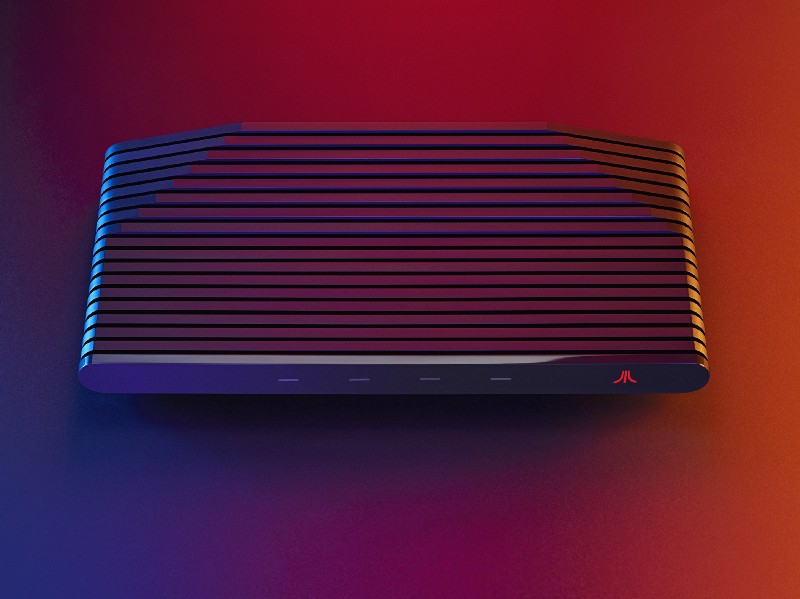While I remain quite sceptical of the Atari VCS, I'm still pretty interested in it as a Linux gaming device. Atari recently did a Q&A blog post detailing some interesting information about it. The post is written by Rob Wyatt, the System Architect for the Atari VCS device. If the name Rob Wyatt doesn't ring a bell—they were the original Xbox system architect.

Firstly, they've decided to upgrade the RAM from 4GB to 8GB, which gives it quite bit more room to breathe. Quite a lot of games require more RAM now, so that's good. Not expecting it to run some AAA games, but it's still a nice step forward for the device:
The VCS hardware will be powered by an AMD Bristol Ridge family APU with Radeon R7 graphics and is now going to get 8 gigabytes of unified memory. This is a huge upgrade from what was originally specified and unlike other consoles it’s all available, we won’t reserve 25% of hardware resources for system use.
They also explained why they went with Bristol Ridge instead of Ryzen:
Yes, on paper the Ryzen family is technically better but without increasing the cost and having a higher thermal capacity, a Ryzen APU would never run at full performance. When the Ryzen is operating in a thermally limited environment its performance is only marginally better than Bristol Ridge.
They're calling their version of Linux "AtariOS". To get a game to run on the Atari VCS, you need to ensure it "runs on Linux at HD resolution using standard runtime libraries" as they claim the changes will be minimal in getting it to support their hardware. This is really great, since it certainly could push a few extra developers towards getting their games on Linux.
Once a game supports Linux, it gains access to more traditional Linux distributions via Steam, GOG, itch and others as well as the Atari VCS now too. I just hope that developers don't end up only putting their games on the VCS.
What's really interesting as well, is their explanation of how you can run another Linux distribution alongside their official AtariOS:
Our core architecture consists of the Atari Secure Hypervisor and a heavily modified linux kernel called the AtariOS. All of this is in flash memory and before the AtariOS loads, any external storage device is checked, and if a bootable device is found, the OtherOS on that device is loaded instead. We don’t have a typical OS loader like UBoot or GRUB, and because the CPU is already in 64 bit protected mode from our boot code, the OtherOS will need its typical startup code changing.
For a Linux distribution loaded in their OtherOS mode, it will have full access to the hardware so it will be a proper Linux device that is yours. They say they will give out details on how to boot a standard Ubuntu distribution on it, so that's great.
This line also got me:
We never want to lose sight that it’s your hardware to do with as you want.
Words I hope they remember to stick by. An interesting blog post, that has certainly cleared up a few of my lingering worries about the device.
They managed to raise just shy of three million on their IndieGoGo campaign, which seems like an impressive number, but likely not close to the real cost of getting this device past the prototype stage, manufactured and actually out in your hands. With that in mind, we will be watching it closely.
Quoting: YesmanDepending on how the chassis' construction is and the final price I would be tempted to buy one to just gut it and use the chassis to make a sexy lil HTPC, well, that is if it can actually house a mini itx board, but I digress.yeah, if they would just sell a case for Mini-ITX boards. Then again with their comments about Ryzen being temperature throttled.. sounds like the case design isn't the greatest.
Very promising product all around and I'm interested in seeing how it progresses.
...BS. There is no way in hell that the improved architecture and move to 14nm from 28nm in manufacturing is going to give a marginal performance improvement.
When the Ryzen is operating in a thermally limited environment its performance is only marginally better than Bristol Ridge.
I strongly suspect that a bigger factor was that amd, having to get rid of a bunch of bristol ridge CPU's and chipsets that no one wants, gave a very nice deal to atari.
Last edited by emphy on 22 Jul 2018 at 8:58 am UTC
Quoting: emphyI think the point was that it auto throttles when it is too hot, and when that happens the performance isn't much better. Anyone ever tested this to see if it is bullshit? Curious if they are lying or not....BS. There is no way in hell that the improved architecture and move to 14nm from 28nm in manufacturing is going to give a marginal performance improvement.
When the Ryzen is operating in a thermally limited environment its performance is only marginally better than Bristol Ridge.
I strongly suspect that a bigger factor was that amd, having to get rid of a bunch of bristol ridge CPU's and chipsets that no one wants, gave a very nice deal to atari.
Quoting: slaapliedjeDoesn't matter: this generation, AMD improved performance per watt on their cpu's so much it's not even funny. Apart from both chips being equally down clocked in any thermally constrained situation (probably bristol ridge gets down clocked more, due to the manufacturing process), even the high end bristol ridge chips require a significantly higher clock speed to keep up with even the low end ryzen processors.Quoting: emphyI think the point was that it auto throttles when it is too hot, and when that happens the performance isn't much better. Anyone ever tested this to see if it is bullshit? Curious if they are lying or not....BS. There is no way in hell that the improved architecture and move to 14nm from 28nm in manufacturing is going to give a marginal performance improvement.
When the Ryzen is operating in a thermally limited environment its performance is only marginally better than Bristol Ridge.
I strongly suspect that a bigger factor was that amd, having to get rid of a bunch of bristol ridge CPU's and chipsets that no one wants, gave a very nice deal to atari.
As an example, in this video https://www.youtube.com/watch?v=w7dOo_H2YbM , the ryzen 3 beats the a10 by, roughly, 70-80fps vs 40-50fps, at 50-60% cpu utilisation vs 80-90%
The only thinkable situation where atari's statement on ryzens performance in a thermally constrained environment might be true would be in an office environment, most certainly not when playing games from the last two decades.
Last edited by emphy on 25 Jul 2018 at 10:36 am UTC






 How to setup OpenMW for modern Morrowind on Linux / SteamOS and Steam Deck
How to setup OpenMW for modern Morrowind on Linux / SteamOS and Steam Deck How to install Hollow Knight: Silksong mods on Linux, SteamOS and Steam Deck
How to install Hollow Knight: Silksong mods on Linux, SteamOS and Steam Deck